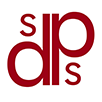Innovative Tools in the Study of Language

Virtual Summer School
June 14th-17th 2021.
Linguistic data, be it oral, signed, audiovisual or written, is now available in unprecedented quantity due to progress in information technology. This provides new opportunities for large-scale, ecologically valid, real-time research with a wide range of possible applications from clinical settings (augmented communication technologies for the blind, the hearing-impaired etc.) to technological improvement (intelligent internet search algorithms, speech recognition etc.). But working with high dimensional data is challenging. Scholars, therefore, need theoretical as well as hands-on training with novel research tools to meet these challenges. The online summer school entitled “Innovative Tools in the Study of Language” aims to offer this training opportunity, familiarizing participants with methods such as corpus analysis, machine learning, multisite collaborative testing etc.
Confirmed Instructors:
- Simon De Deyne (University of Melbourne, Australia)
- Jonathan Ginzburg (Université de Paris, France)
- Rastislav Hronsky (Tilburg University, The Netherlands)
- Emmanuel Keuleers (Tilburg University, The Netherlands)
- Claartje Levelt (University of Leiden, The Netherlands)
- Brian MacWhinney (Carnegie Mellon, USA)
- Ingmar Visser (University of Amsterdam, The Netherlands)
- Roberto Zamparelli (University of Trento, Italy)
- Marco Zorzi (University of Padua, Italy)
The summer school will be held exclusively online. To ensure ample opportunity for interaction, hands-on training and networking, the number of participants will be limited to 30. Registration is open to all academic levels.
Participation is free, but registration is mandatory. Participants can register at the following link
Registration deadline: May 30th, 2021. Participants will be notified and registration will be confirmed by June 3rd, 2021.
If we receive more registrations than the number of available slots, selection will be made on the basis of applicants’ CV and motivation letter. Priority will be given to underrepresented minorities.
Tentative Schedule:
| All times in Padua time, CEST (GMT+2) | Monday June 14th | Tuesday June 15 th | Wednesday June 16th | Thursday June 17th |
| 9:00-10:30 | De Deyne: “An introduction to multi-scale semantic network analysis” chair: Navarrete | |||
| 10:30-11:00 | break | |||
| 11:00-12:30 | Levelt & Visser: “Multi-lab, large-scale infant testing” chair: Gervain | individual student presentations chair: Pagliarini | Ginzburg: “Laughter, Head-shakes, and Gaze: towards a theory of polyphonic interaction” chair: Gervain | |
| 12:30-14:00 | break | |||
| 14:00-15:30 | introduction & ice-breaker activities chair: Gervain | Zorzi: “Computational Modelling of Language Development: The case of reading” chair: Vespignani | Keuleers & Hronsky: “Linking behavioral language data and artificial intelligence I” chair: Peressotti | Zamparelli: “Answering linguistics questions using NLP” chair: Vespignani |
| 15:30-16:00 | break | |||
| 16:00-17:30 | MacWhinney: “TalkBank Tools for the Study of Spoken Language I” chair: Gervain | MacWhinney: “TalkBank Tools for the Study of Spoken Language II” chair: Gervain | Keuleers & Hronsky: “Linking behavioral language data and artificial intelligence II” chair: Peressotti | individual student presentations chair: Vespignani |
Contact
With any questions, contact Judit Gervain at judit.gervain@unipd.it
Scientific committee:
- Judit Gervain (University of Padua, Italy)
- Eduardo Navarrete (University of Padua, Italy)
- Elena Pagliarini (University of Padua, Italy)
- Francesca Peressotti (University of Padua, Italy)
- Cecilia Poletto (University of Padua, Italy)
- Emanuela Sanfelici (University of Padua, Italy)
- Francesco Vespignani (University of Padua, Italy)
Local organizing committee:
- Judit Gervain (University of Padua, Italy)
- Eduardo Navarrete (University of Padua, Italy)
- Francesca Peressotti (University of Padua, Italy)
- Francesco Vespignani (University of Padua, Italy)





